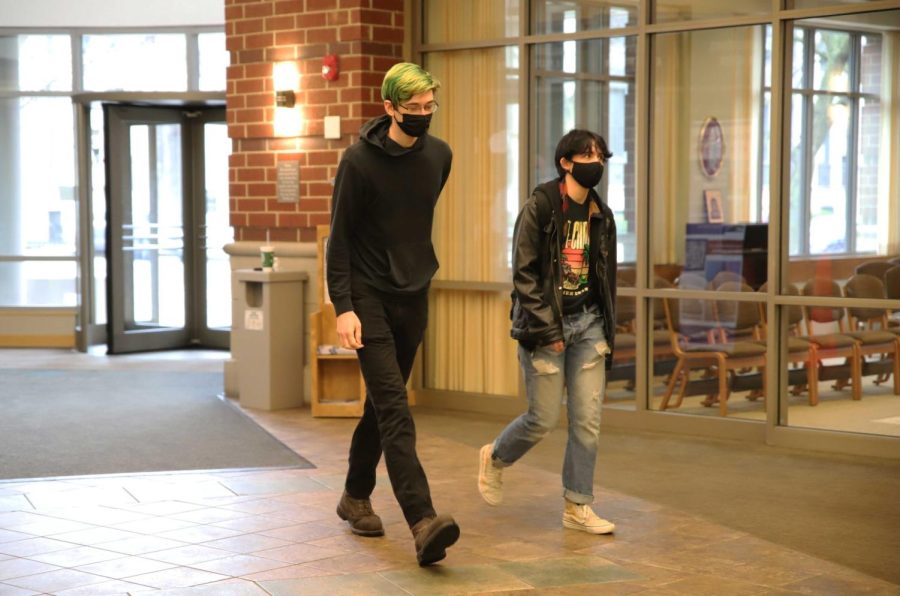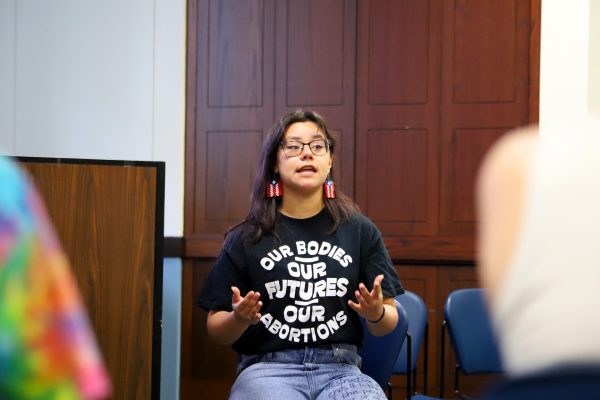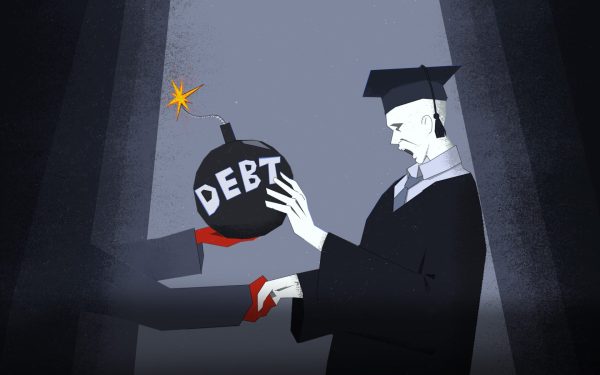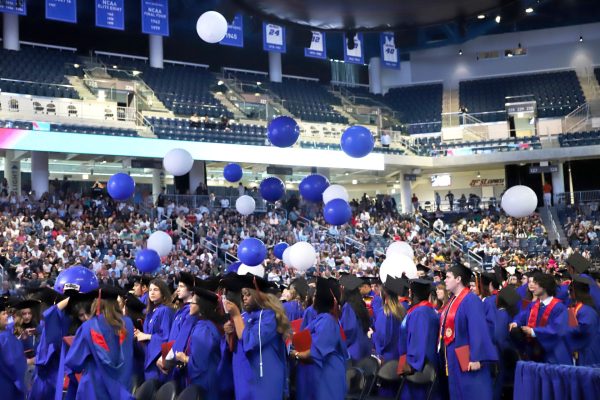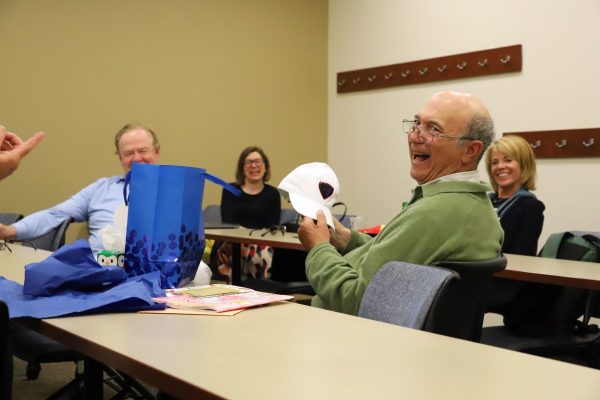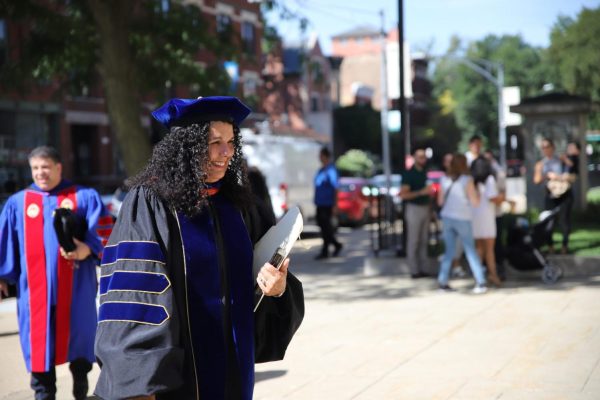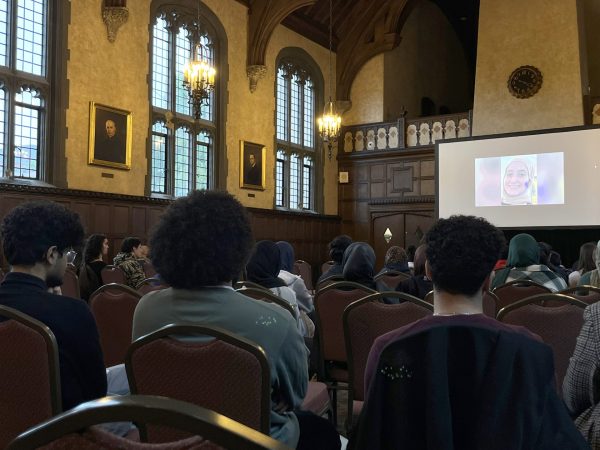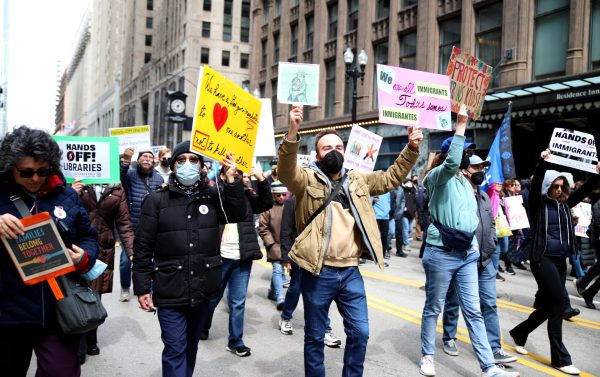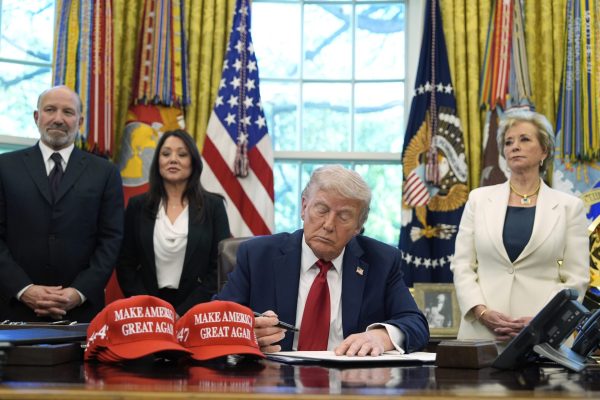Covid cases rise amongst students and faculty as university goes forward with dropping mask mandate
Emily Soto for The DePaulia
DePaul has transitioned to a mask-optional campus as of April 11.
DePaul’s campus-wide mask mandate officially ended on April 11. Students, faculty and staff may now choose whether or not they will wear masks on campus, even in classrooms and lab rooms.
The university continues to regard itself as mask friendly, encouraging mask-wearing when indoors.
The university saw 56 cases the week of Apr. 1 to Apr. 8, with 50 student cases and six staff cases, according to DePaul’s Covid-19 dashboard. This marks the university’s second-highest instance of Covid-19 on campus, with the record belonging to the week of Jan. 21 to Jan. 28 – the first week back in-person after initially starting online – with 57 cases, when Omicron was at its peak.
Chicago’s cases also continue to climb, with a 45 percent increase from last week’s 314, according to Chicago’s Covid Dashboard.
The university has declined to directly respond to questions regarding the impact on immunocompromised students and confusion regarding masking in the face of possible exposure.
Yet, students and faculty remain divided regarding the university’s decision.
DePaul freshman Lilly Groth expressed apprehension due to Covid-19’s lingering presence on campus.
“I somewhat expected DePaul to start lifting their mask mandates eventually, but I still feel like it is a little too early of a call,” Groth said. “Just recently, some friends of mine were contacted about possibly being exposed to a Covid outbreak, and this email came to them just three or four days before the mandate was lifted.” Despite students returning from spring break, DePaul’s increase in cases cannot entirely be written off as an expected upsurge.
Since Omicron’s initial wave has faded, BA.2 – known as “stealth Omicron” – has become the dominant strain globally accounting for 72.2 percent of cases within the U.S. as of Apr. 2, according to the CDC.
While BA.2 is 50 percent to 60 percent more transmissible than the initial omicron variant, it appears no more severe than its predecessor, according to NBC Chicago.
DePaul management professor Erich Dierdorff believes the university is in a stable place to safely remove masks from the classroom without endangering at-risk faculty or staff.
“The primary reason I’m pleased is that we have been cautious as an institution,” Dierdorff said “We have met the thresholds that the CDC put out and remained masked anyways. I believe we honestly could have made this shift last quarter.”
As masking becomes a personal decision, Dierdorff clarifies that the choice is up to his students.
“I will always encourage individuals to do what they feel comfortable with,” Dierdorff said. “I care for my students and would not want to stress them out by forcing my perspective upon them.”
Parveen Mundi, Student Government Association senator for intercultural awareness, remains on edge regarding the university’s ability to handle the inevitable uptick in cases.
“I think there is going to be a burden on faculty when it comes down to more students being exposed to somebody else with Covid-19,” Mundi said. “Should students wear masks to class if regarded as close contact? We’re going to get these answers pretty soon, I think, but I believe it will be from demand through students and staff, rather than from DePaul taking charge.”
Despite the majority of individuals contracting Covid-19 experiencing minor symptoms, DePaul’s judgment possesses complications for immunocompromised and disabled students.
“I don’t think this decision sends a good message to these students,” Mundi said. “The university has shown time and time again that they are not willing to go out of their way to accommodate these students just as they’ve shown they don’t want to keep the protection in place for them.”
As for whether or not it is too early for the university to be making such an impactful decision, Kaur continues to be wary.
“I think it was too much too fast,” Mundi said. “I understand the university’s thought process [of] wanting to return to the quintessential college experience, but it feels like an uncoordinated leap, rather than a thought-out plan.”


